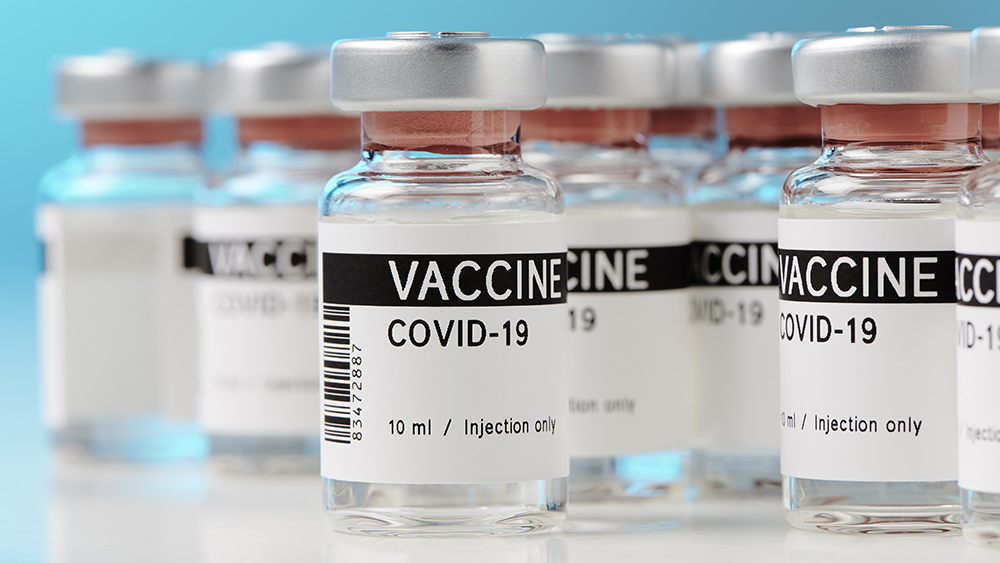Researchers find you can manage your cholesterol levels with ginger and rosemary oil
01/07/2019 / By Ellaine Castillo

The heart is a strong organ that can withstand a lot of stress, but it is not invincible. Factors such as high cholesterol levels pose a big problem for heart health since it can affect lipoprotein transport and metabolism. Moreover, it can alter the structure and function of blood vessels by accumulating within the lining of the walls and causing lesion and plaque formation. Together, these effects increase the risk of cardiovascular diseases like atherosclerosis, stroke, and high blood pressure.
Today, high cholesterol level or hypercholesterolemia has become a major problem due to the prevalence of unhealthy lifestyle choices, which include poor diet and lack of physical activity. Fortunately, there are ways to manage cholesterol levels and consequently reduce the risk of heart problems. Most medical professionals recommend taking cholesterol-lowering drugs such as statins. However, there are better options than this that aren’t associated with side effects like muscle pain, liver damage, increased blood sugar levels, and memory loss. Researchers from King Abdulaziz University in Saudi Arabia found that ginger and rosemary oil have potential use as natural remedies for hypercholesterolemia.
Ginger (Zingiber officinale), which belongs to the tropical and subtropical family Zingiberaceae, is commonly used as a food additive and a traditional remedy for various diseases. These include arthritis, inflammatory disorders, nausea, bacterial infections, cancer, and hyperlipidemia. Previous studies have shown that these therapeutic applications are possible due to the bioactive compounds present in ginger, which include terpenes, gingerol, shagaols, zingerone, and paradol.
The commonly used flavoring agent rosemary (Rosmarinus officinalis) also has its own share of benefits. This herb exhibits potent antioxidant and antiviral properties. Furthermore, rosemary works against inflammatory disorders as well as liver and kidney toxicity. (Related: One of the most esteemed herbs in the culinary world, rosemary is also a powerhouse in traditional medicine.)
In this study, which was published in the African Journal of Traditional, Complementary and Alternative Medicines, the researchers evaluated the effects of using ginger and rosemary oil, either separately or together, on the cholesterol levels of female albino rats given a high-fat diet. They also considered other parameters such as glucose, triglyceride, and alkaline phosphatase levels in determining the hypocholesterolemic properties of the two oils.
Results showed that without treatment, rats that were given a high-fat diet exhibited elevated total-cholesterol, glucose, triglyceride, and alkaline phosphatase levels, as well as a decrease in the amount of good cholesterol present. Oral administration of ginger and rosemary oil modulated the changes observed in these parameters, proving that they can be used as natural remedies for hypercholesterolemia.
Effects of high cholesterol levels on the body
When talking about the harmful effects of high cholesterol levels, most people focus on its effects on heart health. However, excess cholesterol also inflicts damage on other organ systems, including the endocrine, nervous, and digestive systems. Some examples of how high cholesterol affects these systems include the following:
- Interfering with hormone production — Cholesterol isn’t completely bad. It is even necessary for the production of hormones, such as estrogen, testosterone, and cortisol. This is believed to be the reason why post-menopausal women suffer from low estrogen levels and a higher risk of heart disease. Moreover, hormones are involved in the regulation of cholesterol levels. For example, insufficient production of androgen and growth hormone can raise levels of bad cholesterol.
- Increasing the risk of Alzheimer’s — Approximately 25 percent of the body’s total supply of cholesterol is found in the brain, where they are used to produce and repair nerve cells that facilitate communication with the rest of the body. However, too much cholesterol is bad for the brain since it can block arteries and prevent blood from reaching the brain. Additionally, excess cholesterol promotes the formation of beta-amyloid plaques that damage the brain and increase the risk of Alzheimer’s
- Promoting the formation of gallstones — Too much cholesterol in the bile produced by the digestive system can form into crystals and hard stones in the gallbladder. These gallstones can inflict abdominal pain when they get stuck in your body.
For more articles about the health benefits of ginger and rosemary oil, visit EssentialOils.news.
Sources include:
Submit a correction >>
Tagged Under:
alternative medicine, atherosclerosis, cholesterol, cholesterol levels, essential oils, ginger oil, Herbs, hypercholesterolemia, hypocholesterolemic, natural cures, natural medicine, remedies, research, Rosemary Oil
This article may contain statements that reflect the opinion of the author
RECENT NEWS & ARTICLES
COPYRIGHT © 2017 RESEARCH NEWS





















